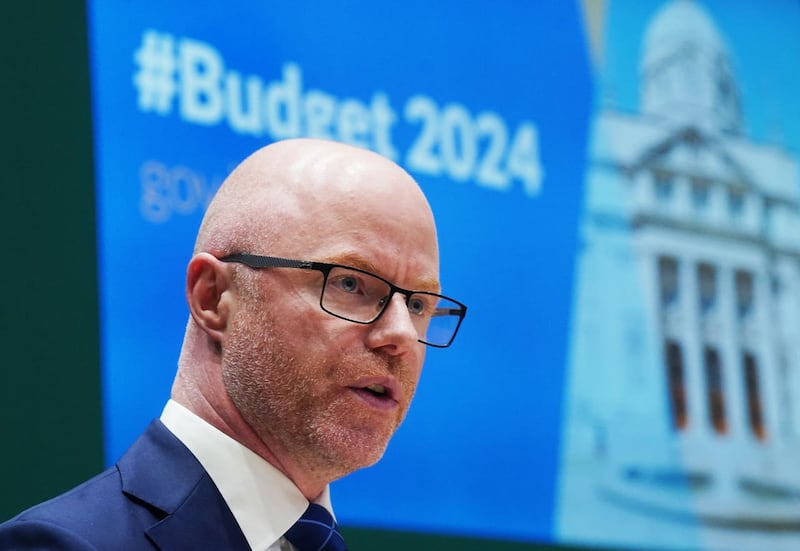Ireland’s budget watchdog has said it is deeply concerned with the Government’s “fiscal gimmickry and just basic poor budgeting” as it published a report issued to the Minister for Finance.
The Irish Fiscal Advisory Council (IFAC) accused the Government of employing “fiscal gimmickry” to flatter its numbers and present lower spending in Budget 2024 than is actually likely to happen.
It said that given the strong economic activity ahead of the budget, it was “not a time to add too much fuel to the fire” by announcing the Government’s substantial package of measures and cost-of-living support.
IFAC said the 12 billion euro package was in line with Covid budgets and roughly three times as high as pre-pandemic bundles.
It said that while some cost-of-living package may have been necessary and will help many, it was critical of the fact that, by its estimates, more than 70% of the schemes were untargeted.
In a long-standing complaint from the independent council, it said the budget indicates further breaches of a spending rule which is designed to tie expenditure growth to the estimated sustainable nominal growth rate of the economy at 5% per year.
The Government said it had to surpass the rule due to high levels of inflation.
Acting chairperson Michael McMahon told reporters at a briefing on the report that “Ireland needs to get serious about its national spending rule and its fiscal framework”.
He said the spending rule should be legislated for to avoid inflationary pressures and risking painful cuts to spending or tax increases in the future.
The council also said transparency in Budget 2024 was “particularly poor”.
It said the separation of spending into core and non-core elements has become “extremely blurred” and unhelpful.
The council believes a better approach would be to focus on general government spending, net of tax measures.

Mr McMahon said the council had made clear to Government prior to Budget 2024 that persistent domestic price pressures conveyed that the Irish economy did not need a widespread physical stimulus.
“The ‘everything now’ approach of tax cuts and a ramp up in capital spending and current spending increases the risk that we repeat Ireland’s past mistakes.”
It warned that the Budget’s tax cuts could add to inflation over the coming two years by between 0.5-1.8%.
The council said that pressures to spend more will be substantial and that stand-still costs are “far higher” than what is included in official projections, given an older and growing population as well as higher prices.
Mr McMahon warned that poor budgeting, especially in the health allocation, reduced fiscal credibility.
The Fiscal Assessment Report for December 2023 states: “The Budget ignored this year’s health overruns and the health allocation for 2024 was barely sufficient to cover stand-still costs.
“The pressures in these areas are largely predictable and should not come as a surprise. They follow the ageing of the population and the tendency for prices to rise faster in healthcare. Not dealing with them head on risks further overruns in future.”
Mr McMahon said the IFAC also believes that the “substantial” Covid and Ukraine-related spending is likely to continue beyond next year, despite the Government’s spending estimates assuming that it will drop to zero from 2025 on.
More positively, the council welcomed the Government’s decision to introduce two major long-term investment funds which it said would help deal with excess corporation tax receipts which will not necessarily last forever.
Mr McMahon said the IFAC had not been panicked about a recent slump in corporation tax receipts which ultimately sharply reversed in November.
He reiterated the council’s position on the need to plan for volatility in corporation tax receipts and stressed: “The key point that we’ve been trying to make in the last month is we know it’s a volatile source but that if we budget properly, we should not be worrying about its fluctuations up and down in any given month or few months.”






